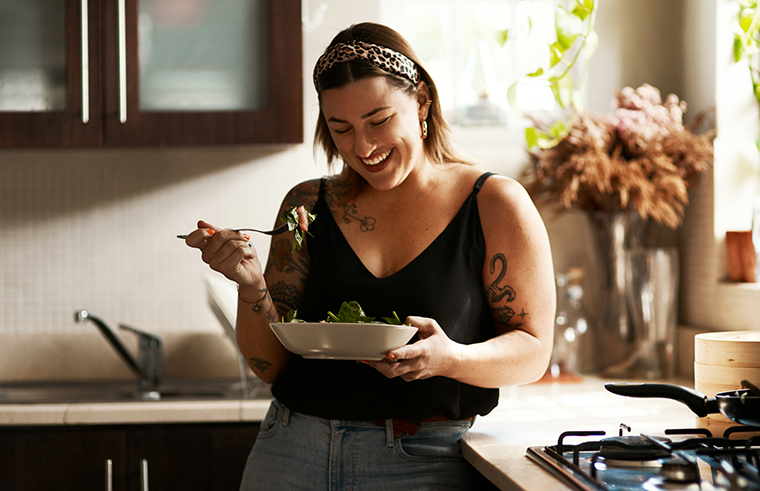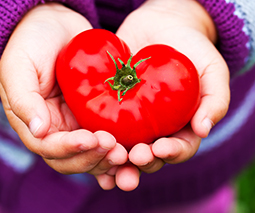10 diet dos and don’ts for when you’re trying to conceive

If you’re trying to fall pregnant, your dietary choices can make a huge difference to not only your ability to conceive but also setting you up for a healthy pregnancy.
Melbourne dietician Melanie McGrice shares what you should and shouldn’t be consuming when you’re on the road to conception.
Don’t give up on exercise
Anyone unsure of whether their dietary choices are helping or sabotaging their chances of having a baby should seek advice from an accredited dietician. “It is important to remember diet has a significant impact on your fertility,” Melanie says.
“Exercise is also an important part. I know many women who have given up exercise when they are trying to conceive and that is really not recommended. Really, it is important to get yourself in a good routine to set you up well for pregnancy – lots of fresh foods over processed foods and watching your portion sizes.”

Every woman is different
Your dietary needs will be different to the woman beside you, which is why you should always speak to your healthcare professional before making any major dietary changes.
“The biggest thing to remember is everyone is different; everyone has different lifestyles and conditions and when you are preparing to conceive, it really is the time to be looking at optimising your health,” Melanie explains. “So if you have diabetes, coeliac disease or thyroid issues, you really need to be looking after them to the best of your ability.”
Another important piece of information to note is that you should confirm that any supplements you regularly take are safe to continue while pregnant (even if you aren’t there yet). For example, Melanie says anyone taking Vitamin A supplements should be aware that too much Vitamin A can be toxic for a baby.
The diet dos and don’ts for baby-making
Here’s what Melanie says are the key diet dos and don’ts when trying for a baby:
Do:
- Take folate, or folic acid; it’s important in early pregnancy especially for the prevention of neural tube defects. All women are urged to take at least 400 micrograms but Melanie says some women may need to take extra. Speak to your health professional to find out exactly how much folate you should be taking.
- Eat fish that is high in Omega-3 and low in mercury at least three times a week. Melanie says salmon is the best choice as well as tinned fish for helping to decrease possible insulin resistance and improve the health of a woman’s eggs.
- Start taking a pre-pregnancy multivitamin that contains iodine unless you have a thyroid issue, in which case speak to your healthcare professional. Iodine helps with your metabolism, and is especially important for your growing baby because it impacts on your thyroid function.
- Replace two meat meals a week with plant-based protein meals such as lentils, chickpeas or tofu because research shows it can help optimise fertility rates and contains less saturated fats. Eggs are also another good source of non-meat protein.
- Make an appointment to see a dietician to really look closely at your individual dietary needs.
Don’t:
- Eat too much sugar as it can worsen insulin resistance and inflammation, which makes it more difficult to conceive. Time to steer away from lollies and soft drinks.
- Eat foods high in saturated fats such as pastries, biscuits, takeaway foods and potato chips, again because they can increase inflammation. Melanie says research shows a good ratio of healthy fats to bad fats is beneficial for fertility.
- Consume excess amounts of caffeine. While Melanie doesn’t believe there is enough evidence to warrant cutting caffeine out of your diet completely – unless you are really struggling to conceive – limiting the amount you have is a good idea.
- Drink alcohol because it is only going to add to weight and it’s not really going to add to the nutrition you need to fall pregnant. Your body will process the alcohol before it processes anything else and it slows the metabolism down in the short-term.
- Follow fad diets, such as a juice-only diets because you won’t be getting the nutrition you need.









